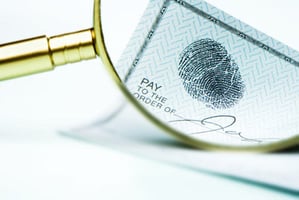Forensic accounting is neither glamorous nor nearly suspenseful enough to rate a Friday night TV...
History of Forensic Accounting
With all the publicity given to forensic accounting these days, you’d be forgiven for thinking that it’s a fairly recent aspect of the accounting profession, but evidence shows that it has actually been around for centuries. In fact, archaeological findings reveal that, as far back as 3300-3500 BC, the scribes of ancient Egypt, who were the accountants of their day, were involved in the prevention and detection of fraud.
In more recent times, a close relationship developed between the accountancy and legal professions in the 1800’s, with accountants acting as expert financial witnesses in court cases. And in 1930’s America, while Eliot Ness got all the publicity in the case against Al Capone, it was the work of Elmer Irey, an accountant with the Internal Revenue Service working behind the scenes, that ensured Capone’s conviction for tax evasion. He was probably America’s first high-profile forensic accountant.
So, far from being a new practice, forensic accounting has long been part of the accounting profession. While it took a back seat in the early 20th century with general accounting taking a greater role, it is now merely returning to its traditions.
Today’s forensic accountants are involved in a wide variety of cases, from the more mundane family law and commercial matters through to a range of criminal investigations, which include white-collar crimes such as business and insurance fraud through to organised crime, murder and even terrorism where forensic accountants are used to trace the money trail and uncover just who is financing the terrorist groups.

